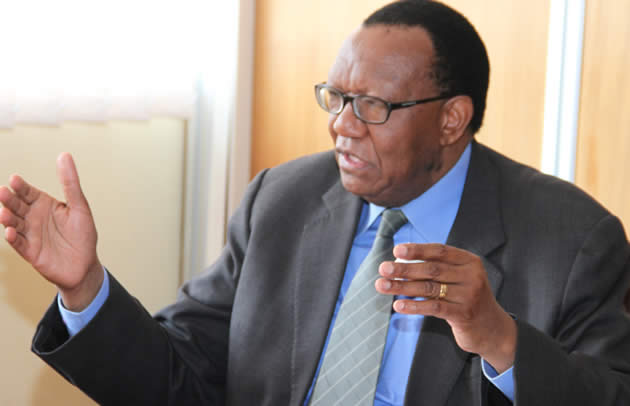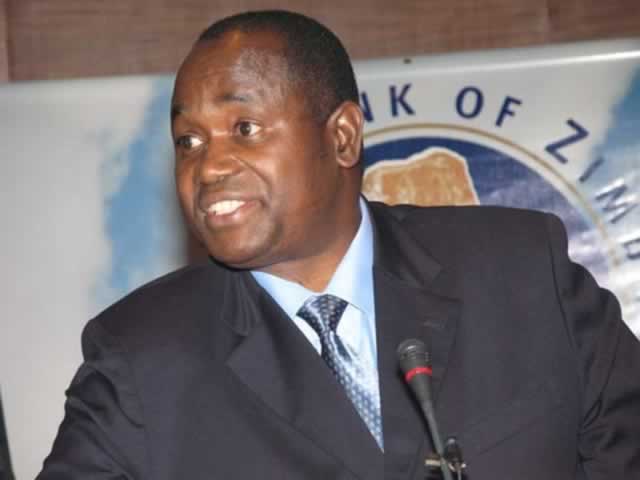![chaibva]()
Mr Gabriel Chaibva
Tendai Mugabe and Elita Chikwati
Government is well on course to realising its vision of creating over two million jobs by 2018, judging by the solid groundwork that has been laid through several investment deals sealed with two of the world’s fastest-growing economies, Russia and China.Buoyed by policies of the ruling Zanu-PF, the Government has also created vast employment opportunities in the agricultural sector, where Zimbabwe is slowly and convincingly restoring its breadbasket status in Southern Africa.
So far, hundreds of thousands of jobs have been created through massive infrastructure rehabilitation and the lucrative tobacco sector that has earned farmers over half a billion dollars annually for the past three years.
The $3 billion platinum project between Zimbabwe and Russia, which President Mugabe commissioned last week in Darwendale, spanning over 10 years is expected to create over 15 000 jobs for the local community and also benefit small businesses contracted to offer services.
In separate interviews yesterday, political analysts and agricultural experts, said the revolutionary party should be applauded for living up to its word and those calling for the so-called street protests to demand jobs, were either ignorant of the economic developments in the country or were just making themselves politically irrelevant.
They said the Zanu PF election manifesto, which have been transformed into Zim Asset, covers a five year period and that expecting two million jobs to be created in 12 months lacked reason.
This comes in the wake of “ill advised” calls by the fractious MDC-T’s leader, Mr Morgan Tsvangirai, some members of the split Zimbabwe Congress of Trade Unions and Combined Harare Residents Association that people should stage demonstrations to force the Government to deliver on its electoral promises.
Turnarounds of such magnitude should never be expected to bear fruit over a short period of time such as 12 months as being agitated by the opposition forces given that the country went through gruelling effects of the illegal sanctions over a decade.
Besides, unemployment, economic decline and dwindling capacity utilisation by local firms among others factors, were a result of the sanctions imposed on the country at the behest of the MDC-T and its allies.
University of Zimbabwe lecturer and political analyst, Dr Charity Manyeruke, said fruits of Zanu-PF’s policies were there for everyone to see.
“They (MDC formations and allies) do not understand how a national economy operates,” she said. “There are several variables that are involved and now we already have clear deals that are positively coming from China and Russia and there are lots of jobs that are going to be created notwithstanding the benefits of the land reform programme.”
Dr Manyeruke said calls by the MDC-T and its allies were conveniently designed to deflect attention from their internal squabbles.
“There are serious challenges afflicting these organisations and they are trying to divert attention. There is stability in the country but there are some people who wanted to create trouble yet trouble was burgeoning in their back yards.”
Dr Manyeruke said MDC-T was lagging behind in terms of economic developments, making it an irrelevant stakeholder.
Political analyst Cde Gabriel Chaibva, said Zanu-PF was serious about Zim Asset and Mr Tsvangirai and his acolytes were merely trying to curry favours with their erstwhile Western masters.
“We mean serious business about Zim Asset,” he said. “The call for street protests is an old and tired utterance, which no sensible Zimbabwean would ever bother to read about.
“We have heard this and we are hearing it again. These are talks of a bunch of people who in the drunken stupor, think they can find relevance with their masters and not with Zimbabweans in the futile belief that the master might be once again reckless with his purse.”
Mr Chaibva said the MDC formations and some of their loyal cronies in the civic society, were no longer relevant in Zimbabwe’s political discourse.
“The statements by (Mr) Tsvangirai are intended to lure the filthy American lucre and there is nothing more to it,” he said.
“(Mr) Tsvangirai and those opposition parties are now irrelevant in the political discourse of our country.”
Zimbabwe Commercial Farmers Union president, Mr Wonder Chabikwa, said agriculture had created employment for 70 percent of the population in Zimbabwe directly or indirectly.
“Tobacco, sugar, tea and cotton have created employment for many people who are farmers and casual workers who work in the fields,” he said.
“This has created business for traders who buy the farm produce, processing and others uses.”
Mr Chabikwa said agro based companies remained afloat because of high production in the agricultural sector.
Agricultural economist, Mr Peter Gambara, said more than 100 000 small scale farmers were employed as primary producers in the agriculture sector and were making reasonable income.
“There is tobacco processing, ginning and many people are employed in the dairy sector,” he said.
Seed Co extension services manager, Mr Ivan Craig, said the seed industry hired casual workers during the peak of their business, thereby creating another employment avenue for the youths.
“A number of people are employed in the agronomy and research, workers are employed in the packaging, merchandising and casual workers who work in the packaging and distribution of the seed,” he said.
Zimbabwe Tobacco Association chief executive Mr Rodney Ambrose, recently said tobacco contributed immensely to the economy.
“The tobacco sector alone employs over 300 000 workers directly and now generating close to $700 million in green leaf sales, creating employment for another 1, 5 million indirectly and value addition of close to $1, 2 billion to key export markets,” he said.
“In total the tobacco sector supports close to 6 million people in Zimbabwe.”
He said over 20 000 new small holder farmers supporting more than 200 000 dependants joined the farming sector.
However, MDC-T spokesperson Mr Douglas Mwonzora, tried to justify its actions by claiming that the purpose of their demonstrations was aimed at forcing Government to do what was expected of it.
“The purpose of a demonstration is not to cripple Government operations but to force it into positive actions beneficial to the people,” he said.
“Demonstrations are an expression of displeasure on certain actions.”
He claimed that the demonstrations were necessitated by the realisation that there was no meaningful signs on the ground that Government would meet the 2 million job target by 2018.
A faction of the Zimbabwe Congress of Trade Unions led by Mr George Nkiwane, said they were already mobilizing people for the protests countrywide.
He said they resolved to get into the streets before MDC-T made its pronouncement.
“The protests are a demonstration to Government that as workers we are not happy and they should focus on our plight,” he said.
He said it was important to keep Government operations under check to ensure accountability and to monitor performance.
However, another faction of the ZCTU led by Mr Lovemore Matombo, said their organisation was rocked by challenges that were still before the courts.
As such, he said, they were not part of the call by Mr Nkiwane and his associates to participate in the demonstrations.
Zimbabwe’s economy is on a massive rebound as evidenced by serious commitment shown by Government to implement ZimAsset.
Recently President Mugabe commissioned the $533 million Kariba South hydro power project in line with one of the key pillars of Zim Asset.
Zimbabwe and China signed several investment deals that feed into various clusters of Zim Asset and Government’s economic transformation plans.
 Felex Share Herald Reporter
Felex Share Herald Reporter













